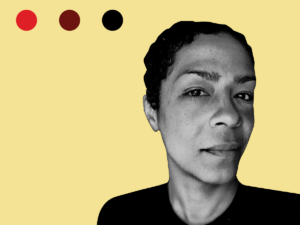
January 22, 2020, The Chattanoogan
Joseph Dycus reports in The Chattanoogan that a nonprofit group called Chattanooga in Action for Love, Equality, and Benevolence (CALEB) has received a $20,000 grant from the city’s affordable housing trust fund to conduct a study about the viability of a possible community land trust system for low-to-moderate income housing in the northeastern Tennessee community.
The resolution, notes Dycus, allocates the $20,000 in housing trust fund dollars to “coordinate the development of a comprehensive study which will assess the feasibility of establishing and sustaining a community land trust in Chattanooga.”
The measure is the product of more than three years of local organizing. Back in May 2017, Joy Lukachick Smith in the Chattanooga Times Free Press wrote about the group “hosting its first educational summit to discuss how to address the city’s rising housing and energy costs and inequality in education, while promoting best practices from within the community.”
The organization, Smith noted, began to meet in September 2016 and built off of a model that had been developed in the state capital in Nashville. CALEB, Smith explained, “operates under the Chicago-based Gamaliel Foundation and is a partnership among eight Chattanooga organizations that consist of labor unions, churches, and the social justice group Chattanooga Organized for Action.”
Chattanooga Organized for Action (COA) has provided a good portion of the research muscle for the community organizing campaign. In January 2019, the group released a report titled Negro Removal in Chattanooga: The Impact of Market-Based Displacement on Communities of Color, authored by Tennessee State public administration professor Ken Chilton, which did not mince words about gentrification and displacement in a city widely lauded for its community development success—often referred to as a “Renaissance” or the “Chattanooga Way.” As Michael Gilliland, board chair of COA, wrote in the foreword to that report:
The massive purging of African Americans from Chattanooga’s urban core hasn’t been a fluke. It’s not that the city’s “Renaissance”—nationally lauded as a success story of public-private partnerships, collaborative vision, and massive investment—hasn’t yet reached the level needed to address decades of poverty, community disinvestment, and racism. Our development model has been structured on inequality. Housing, amenities, and public support have centered on attracting a higher socioeconomic class of people—wealthy, professional, overwhelmingly white—regardless of the effect on working class and historically marginalized communities that have called Chattanooga home. Those benefits and burdens of development haven’t fallen equally; rents increase, but wages are kept low.
Sign up for our free newsletters
Subscribe to NPQ's newsletters to have our top stories delivered directly to your inbox.
By signing up, you agree to our privacy policy and terms of use, and to receive messages from NPQ and our partners.
A study, of course, is only a first step. CALEB’s vision is to create a system of community land trust housing that would serve the Chattanooga community and remain permanently affordable.
As a board member of CALEB tells Dycus, “We had several groups of citizens identify and brainstorm for tools to address the need for moderate- or low-income housing. One tool is a community land trust, which is a nonprofit that builds and sells houses to people with low and moderate income, and that nonprofit retains ownership of the land in perpetuity. It’s a way to preserve that affordability in perpetuity.”
The housing trust money will enable CALEB to conduct a six-month study to determine overall project feasibility. As NPQ has covered, community land trusts, which celebrated their 50th anniversary this year, have increasingly emerged as a tool for preserving affordable housing in many cities, including Nashville, which launched its community land trust last year.
According to Gilliland, who in addition to his role at COA is also a founding member of CALEB, CALEB expects to partner with other organizations to create community land trust housing. Identifying partners forms a central part of “what this feasibility study would do,” adds Gilliland, “and it would define what the best course of action is. It would run from March to September. Then we would likely be having the public meeting sometime in either September or October.”
CALEB and the housing trust board hope that a community land trust can alleviate the rising cost of housing in Chattanooga and give residents—especially often excluded residents of color—a greater voice in the community.
According to CALEB board chair Charlotte Williams, the status quo in Chattanooga is simply unacceptable. “It’s egregious, especially when we’re talking about gentrification,” Williams tells Dycus. With the community land trust, Williams says, “You’ll have input from the entire community, and you’ll have residents involved in the decision-making process.”—Steve Dubb













